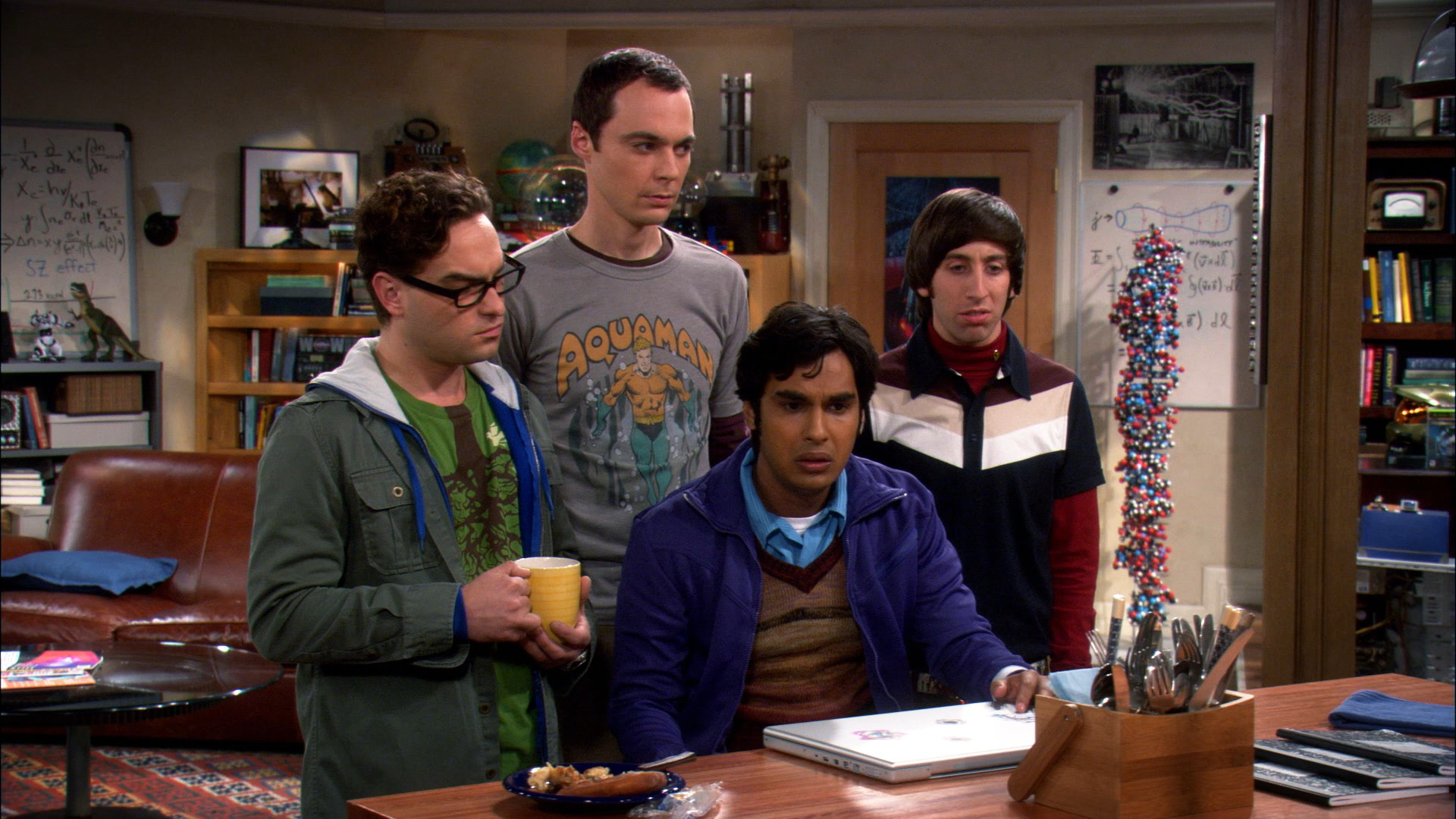
Tayler Bseiso, Student Staff Member
Growing up I stayed with my grandparents a lot. When I was with them I would garden, bake desserts, and make crafts. Well, I guess I should say that I did all that with my grandma; my grandpa, on the other hand, played the perfect role of the stoic retired marine. While my grandma and I had our fun, we could always find my grandpa in his red leather recliner right in front of the TV. He stuck with the same few shows which included but were not limited to ABC News, Spongebob, and The Big Bang Theory. For those not familiar with the show, good for you, but the premise was following a group of nerdy scientists through life as they navigate things like cosplaying competitions, dating, and gender and racial discrimination.
Yes, you read that right, there is an episode entitled ‘The Egg Salad Equivalency’ in which Leonard, a man in a committed monogamous relationship, repeatedly flirts with the assistant of his friend. This friend’s name is Sheldon, a character in the show who is written in a way that suggests he is autistic and insinuates that those with autism are not responsible for the impact of their actions. The flirting from Leonard makes Sheldon jealous and he takes his jealousy out on the assistant. Because of this Sheldon gets reported to HR, who just happens to be run by a Black woman. When confronted with his actions Sheldon blames his assistant but says not to punish her because all women are “slaves” to their reproductive system. Does this episode end in a redemption arch? No, it ends in Sheldon making that same assistant finish the online sexual harassment training he is assigned and Leonard telling his partner that his flirting meant nothing and celebrating being wanted by two women at once. Oh, and why was the episode named after a lunchtime favorite? Because in the words of Sheldon himself, women are like egg salad sandwiches on a warm day “full of eggs and only appealing for a short time.”
Believe it or not, these two aren’t even the worst characters on the show. By far the biggest creep of the gang is a character named Howard. His personality consists of saying horribly sexist pick-up lines to any woman in his range only to get rejected because he’s a nerd and hating his mother while living in her basement. Whenever he tried to hit on a woman in the show my grandparents would just say “bless his heart” or “good on him for trying.” Now, I’m worried you may be thinking I’m exaggerating on just how big a creep he is, when talking to his neighbor Penny, he asks, “Would you have opened the door if you knew it was me?” To which she responds, “Not since I found out that teddy bear you gave me had a webcam in it.” If that’s not enough, in another episode he asks one of his friends who works for North American Aerospace Defence Command to fly a drone over what he suspects is the house used for America’s Next Top Model just to get images of the women sunbathing nude. After confirming the location he then drives out there with his friend Raj to impersonate cable repairmen to enter the house.
So why was The Big Bang Theory still the most-watched show at its time? For the same reason, my grandparents cheered Howard on: America loves an underdog. Rather than analyzing the actions taken by the character, we as an audience are too impressed that they even had the courage to do it.
This ideology is taught to us outside of TV as well. When I was younger and still went to church, a recent widower walked up to bear his testimony and said “It’s been lonely since my wife passed away, but Alison Smith if you ever have a free night here is my number or feel free to come on over.” Her name wasn’t really Alison Smith, but the woman that he called out ran out of the chapel blushing and with tears in her eyes. When talking about it later all my dad said was, “good for him to have the confidence to do it, he’s still got his spark.”Um, why? Is it because we think that the elderly are not supposed to express a sexual desire or that he is strong for having the confidence to get back in the game’ after his wife’s passing? That is what gives him an excuse to publicly sexualize a single woman out of the crowd and cause her to leave crying?
As a young girl, I learned that it was the woman’s responsibility to protect a man’s ego from rejection. I learned that it takes so much courage to ask a woman out and to get rejected may ruin his life. Well, guess what? I have asked women out and I have been rejected. Yes, it sucks but it by no means ever ruined my life. So what made my experience so different from a cis man’s? I, as a person who was raised as a girl, have always been expected to take responsibility for my emotions. That alone could be a whole other post but the gist of it is that our society consistently allows cis men to find outside causes to their emotions whereas cis women are told their hormones make them too emotional as is. Emotions are healthy and normal regardless of gender identity — what changes is how we are allowed to express them. To start holding people accountable for their actions, it is important to view the person, not just through one identity but all, and hold that next to the action. Thinking back to Howard, yes he is a nerd, and he is also a white cis hetero man. That alone means he holds more power in our society than say a nerdy Black cis hetero man. Now, instead of just seeing a nerd trying to flirt, we can see that Howard is someone who holds social power exercising it to sexualize others. Though our social identities don’t excuse the behavior, it’s important to understand that they do influence how that behavior impacts others.
In addition to this, we need to allow men to feel and express their emotions within masculinity. When we tell men that it is feminine to have emotions, of course, they will do anything they can to distance themselves from those emotions. It is not until they are allowed to feel these emotions that they can then learn how to process them in a healthy way. When I get rejected from a date I don’t immediately shrivel up and lose all confidence, I call up a friend and cry a little then see if they want to come with me instead. This isn’t because I am popular or successful; I have like five friends total and those who know me call me an “acquired taste,” but instead because I have practice feeling and processing rejection.
 Tayler Bseiso is a student staff member of the McCluskey Center for Violence Prevention as well as a volunteer peer health educator at the Center for Student Wellness. Their major social identities include being a white bisexual woman who used the pronouns They/Them/Thiers as well as She/Her/Hers.
Tayler Bseiso is a student staff member of the McCluskey Center for Violence Prevention as well as a volunteer peer health educator at the Center for Student Wellness. Their major social identities include being a white bisexual woman who used the pronouns They/Them/Thiers as well as She/Her/Hers.
